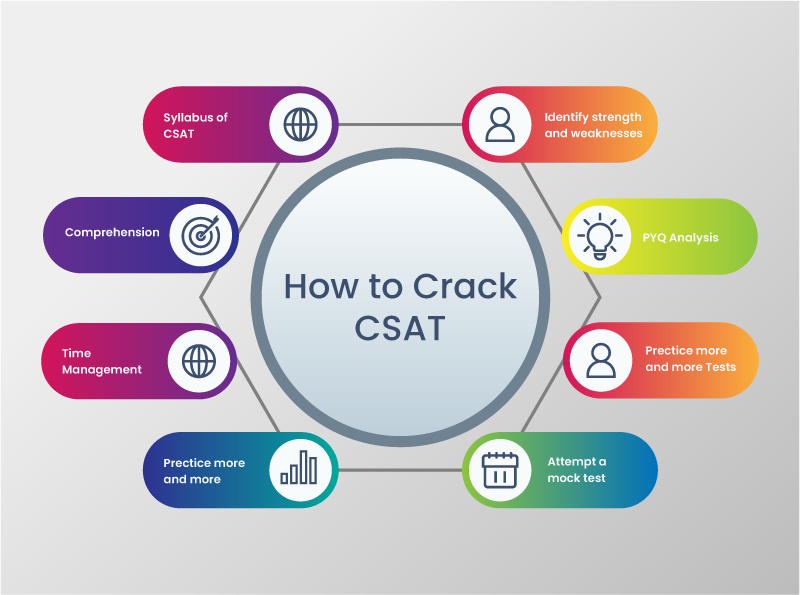Why CSAT is Crucial in UPSC Prelims and How to Crack It
Introduction Many UPSC aspirants ignore the CSAT paper, assuming it’s easy. But in recent years, CSAT has become a challenge for many, even costing otherwise well-prepared candidates their Prelims. This blog highlights the importance of CSAT and how to prepare effectively. What is CSAT? CSAT (Civil Services Aptitude Test) is Paper II of the Prelims. It tests: It’s a qualifying paper, but you must score at least 33% (66 marks) to clear Prelims. Why Aspirants Fail in CSAT Don’t take CSAT lightly. UPSC has made the paper tricky in recent years. CSAT Preparation Strategy 1. Assess Your Current Level Take a previous year’s paper to understand where you stand. Identify your weak areas (comprehension, maths, reasoning). 2. Build Basic Concepts For Quantitative Aptitude: For Reasoning: For Comprehension: 3. Set a Weekly Practice Schedule Dedicate 2–3 hours per week initially, then increase frequency as Prelims approach. Practice under timed conditions. 4. Join a CSAT Test Series Simulated tests help build speed and accuracy. Coaching centers often provide detailed solutions and shortcuts. CSAT in Coaching Curriculum A good UPSC coaching will treat CSAT with the seriousness it deserves. Edubird offers focused CSAT sessions with: Conclusion CSAT is not just a formality anymore. Treat it like a subject that can decide your UPSC fate. Regular practice, basic understanding, and strategic preparation will help you clear it confidently.
Why CSAT is Crucial in UPSC Prelims and How to Crack It Read More »


